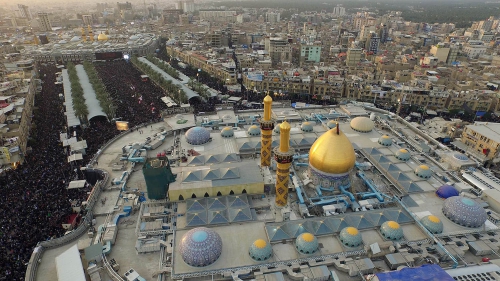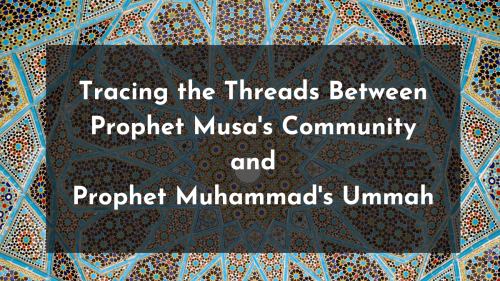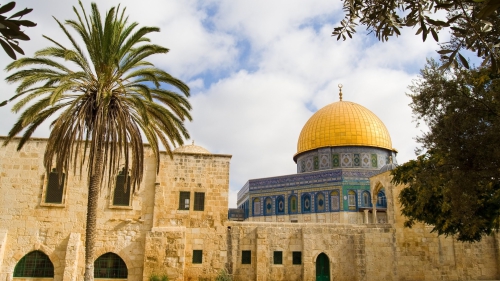A Muslim at Passover
 {file:content.php} {function:blp_getCustomField} {postID:8470} {customField:theClapCount} {default:0}not-in-use-in-plain-child
{file:content.php} {function:blp_getCustomField} {postID:8470} {customField:theClapCount} {default:0}not-in-use-in-plain-child



Every year, I look forward to the Passover holiday. As a devout Muslim, I do not celebrate the holiday, but, I know that it is the time for the annual broadcast of my absolute favorite film of all time, "The Ten Commandments," directed by Cecil DeMille and starring Charlton Heston. First released in 1956, it has become an instant classic, being shown every year around the time of Easter. I try not to miss the film each and every year.
I have seen the ruins of ancient Egypt firsthand, and they are already breathtaking. When I watch the film, it gives me an intriguing sense of what Egypt in antiquity must have looked like, and it makes it truly enjoyable for me. Yet, what brings me back to the film almost each and every year is the story of Moses that is told in the film. It is one of my favorite stories of the Prophets of all time. Throughout the entire film, I am rooting for the Hebrews, even though I am of Egyptian ancestry. I have total disdain for the Egyptian taskmasters cracking their whips at their Hebrew slaves, and I spend the beginning of the film hoping with equal fervor for the coming of the Deliverer.
When Moses finally speaks to and is commissioned by Allah
, I get very excited because now, finally, Moses will confront Pharaoh and set the Hebrews free. Every time Pharaoh hardens his heart against Moses, Allah
sends a plague and I smile with glee. Yet, far and away, my favorite part of the film is the splitting of the Red Sea. I have to fight myself from leaping out of my seat and yelling to the television screen, "You go Allah!" Now, there are things depicted in the film about the Prophet Moses
with which I disagree, and I am a little uncomfortable, given my Islamic sensibilities, with any Prophet being depicted by an actor. Still, I thoroughly enjoy watching the Egyptians getting their butts kicked by Allah and His Prophet Moses.
This should come as absolutely no surprise that a Muslim, of Egyptian ancestry, roots for the Hebrews in "The Ten Commandments." In fact, my first published work was an essay about the film in the book Taking Back Islam. Moses figures very prominently in Muslim belief. He is one of the five mightiest Prophets of Allah, along with Abraham, Noah, Jesus, and Muhammad (peace be upon them all). There are more than 70 passages - many encompassing quite a few verses - that speak of Moses.
Moses is described in the Qur'an as "the chosen of Allah" (7:144), "sincere" (19:51), and "honorable" (33:69). The story of how he came to be raised in the House of Pharaoh, and his confrontation with Pharaoh after he is commissioned as prophet is also detailed in the Muslim scripture. In Islamic tradition, Allah had originally commanded 50 prayers to be performed per day, and it was Moses who continually beseeched the Prophet Muhammad
to ask Allah
for less until it became five. Moses is near and dear to my heart, and that is why I try to watch "The Ten Commandments" every year it is rebroadcast.
There are many in our country - and our world - that seek to divide us along any number of lines: ethnic, racial, and perhaps most dangerously, religious. Extremists on every side do the spectacular, seeking fame and wreaking destruction. Their version of the truth is hardly so, and it distorts the true nature of things: that the Lord wanted us to know one another and, in the words of the Quran, "strive (as if in a race) towards doing good." Just because I am not holding a Seder in my home, it does not mean the story behind the Seder is not close to my heart. Let us pivot off of what we have in common and work together for the common good. The Lord is the ultimate Judge, and knowing Him, that will not be a bad thing at all.
Source: AltMuslim - Hesham Hassaballa
Related Suggestions
In accordance with Title 17 U.S.C. Section 107, and such (and all) material on this site is distributed without profit to those who have expressed a prior interest in receiving the included information for research and educational purposes.














